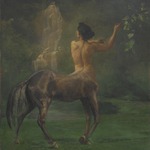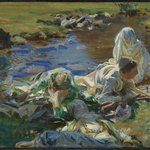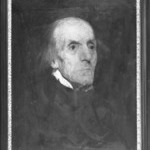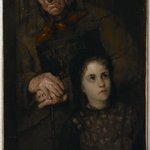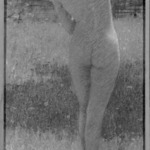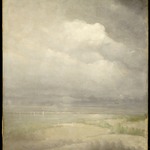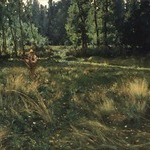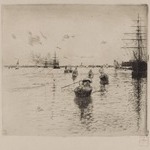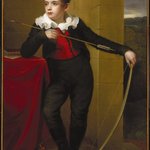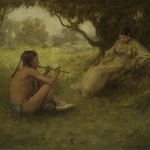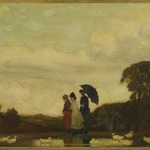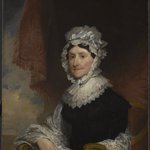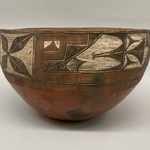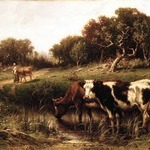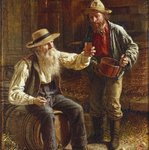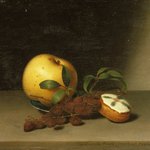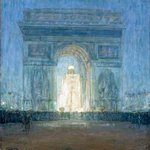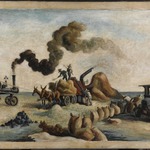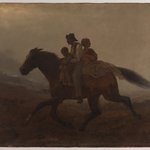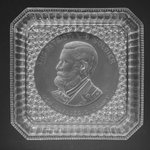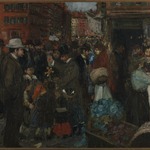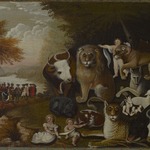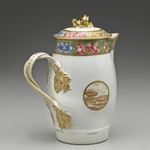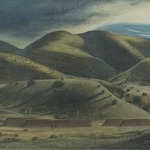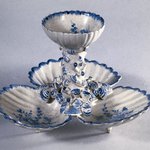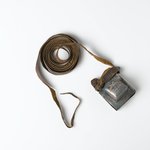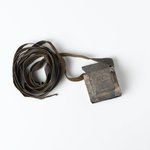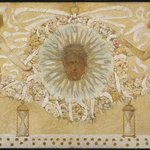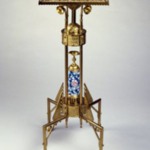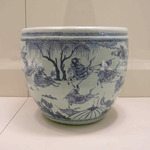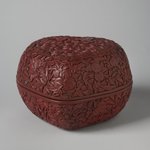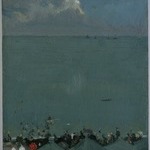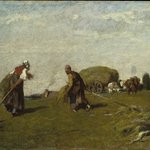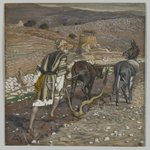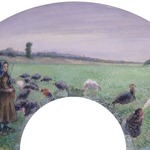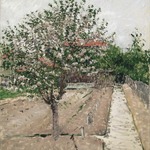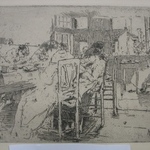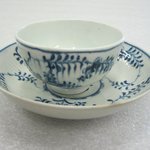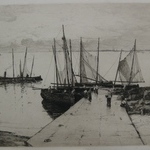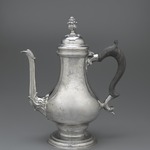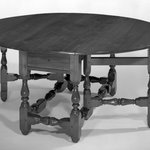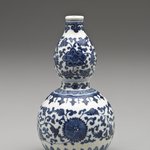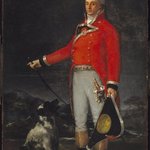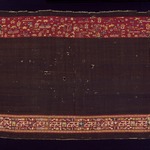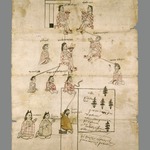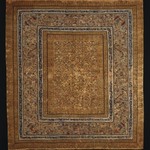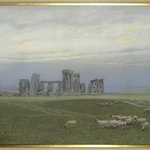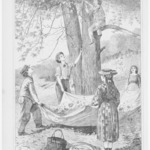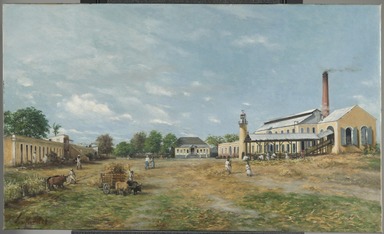
Hacienda La Fortuna
Francisco Oller
European Art
On View: American Art Galleries, 5th Floor, Radical Care
Among the most celebrated Caribbean painters in the nineteenth century, Francisco Oller spent a number of years living and studying in Paris. There he absorbed and reconfigured the radical styles of Realism, with its democratic approach to everyday subject matter, and Impressionism, with its emphasis on spontaneous and momentary effects of light and atmosphere. Together these movements helped Oller form a unique artistic vision of his native Puerto Rico (then a Spanish colony), emphasizing its local plants, landscapes, traditions, and sugar production, the mainstay of the island’s economy.
In 1885 the Barcelona-based José Gallart Forgas commissioned Oller, who was of Spanish descent himself, to paint his five sugar mills, or ingenios, though this is the only one Oller completed. While the sparse landscape includes relatively few laborers, partly a result of Puerto Rico’s abolition of slavery nearly twelve years earlier, this scene is one of technological progress and efficiency, featuring a steam-operated mill at right and a cart track at left. This painting likely hung in the owner’s Barcelona home, serving as a symbol of the capital and technological advancements of his hacienda on the opposite side of the Atlantic
In 1885 the Barcelona-based José Gallart Forgas commissioned Oller, who was of Spanish descent himself, to paint his five sugar mills, or ingenios, though this is the only one Oller completed. While the sparse landscape includes relatively few laborers, partly a result of Puerto Rico’s abolition of slavery nearly twelve years earlier, this scene is one of technological progress and efficiency, featuring a steam-operated mill at right and a cart track at left. This painting likely hung in the owner’s Barcelona home, serving as a symbol of the capital and technological advancements of his hacienda on the opposite side of the Atlantic
MEDIUM
Oil on canvas
DATES
1885
DIMENSIONS
26 x 40 in. (66 x 101.6 cm)
Frame: 33 x 49 x 3 in. (83.8 x 124.5 x 7.6 cm) (show scale)



COLLECTIONS
European Art
ACCESSION NUMBER
2012.19
CREDIT LINE
Gift of Lilla Brown in memory of her husband, John W. Brown, by exchange
PROVENANCE
1885, commissioned from the artist by José Gallart Forgas of Barcelona, Spain; by 2004, inherited from José Gallart Forgas by the Gallart family; March 2, 2004, purchased from the Gallart family at Balclis Auction, Barcelona, Spain "Joyas, Antigüedades y Muebles: Pintura Catalana y Española de Colecciones Particulares," by Carmen G. Correa of San Juan, Puerto Rico; April 19, 2012, purchased from Carmen G. Correa by the Brooklyn Museum.
Provenance FAQ
EXHIBITIONS
MUSEUM LOCATION
This item is on view in American Art Galleries, 5th Floor, Radical Care
CAPTION
Francisco Oller (Puerto Rican, 1833–1917). Hacienda La Fortuna, 1885. Oil on canvas, 26 x 40 in. (66 x 101.6 cm). Brooklyn Museum, Gift of Lilla Brown in memory of her husband, John W. Brown, by exchange, 2012.19 (Photo: Brooklyn Museum, 2012.19_PS6.jpg)
IMAGE
overall, 2012.19_PS6.jpg. Brooklyn Museum photograph, 2013
"CUR" at the beginning of an image file name means that the image was created by a curatorial staff member. These study images may be digital point-and-shoot photographs, when we don\'t yet have high-quality studio photography, or they may be scans of older negatives, slides, or photographic prints, providing historical documentation of the object.
RIGHTS STATEMENT
No known copyright restrictions
This work may be in the public domain in the United States. Works created by United States and non-United States nationals published prior to 1923 are in the public domain, subject to the terms of any applicable treaty or agreement.
You may download and use Brooklyn Museum images of this work. Please include caption information from this page and credit the Brooklyn Museum. If you need a high resolution file, please fill out our online application form (charges apply).
The Museum does not warrant that the use of this work will not infringe on the rights of third parties, such as artists or artists' heirs holding the rights to the work. It is your responsibility to determine and satisfy copyright or other use restrictions before copying, transmitting, or making other use of protected items beyond that allowed by "fair use," as such term is understood under the United States Copyright Act.
The Brooklyn Museum makes no representations or warranties with respect to the application or terms of any international agreement governing copyright protection in the United States for works created by foreign nationals.
For further information about copyright, we recommend resources at the United States Library of Congress, Cornell University, Copyright and Cultural Institutions: Guidelines for U.S. Libraries, Archives, and Museums, and Copyright Watch.
For more information about the Museum's rights project, including how rights types are assigned, please see our blog posts on copyright.
If you have any information regarding this work and rights to it, please contact copyright@brooklynmuseum.org.
RECORD COMPLETENESS
Not every record you will find here is complete. More information is available for some works than for others, and some entries have been updated more recently. Records are frequently reviewed and revised, and we welcome any additional information you might have.

